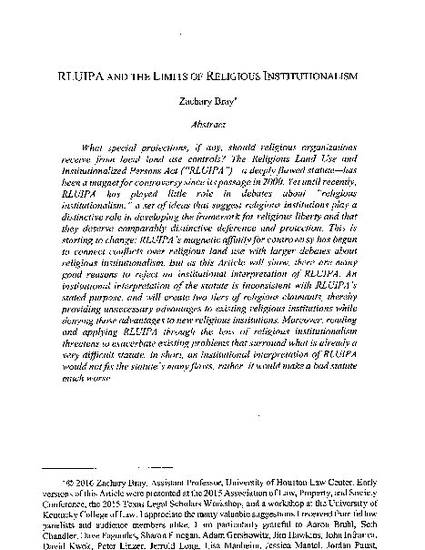
What special protections, if any, should religious organizations receive from local land use controls? The Religious Land Use and Institutionalized Persons Act (“RLUIPA”)—a deeply flawed statute—has been a magnet for controversy since its passage in 2000. Yet until recently, RLUIPA has played little role in debates about “religious institutionalism,” a set of ideas that suggest religious institutions play a distinctive role in developing the framework for religious liberty and that they deserve comparably distinctive deference and protection. This is starting to change: RLUIPA’s magnetic affinity for controversy has begun to connect conflicts over religious land use with larger debates about religious institutionalism. But as this Article will show, there are many good reasons to reject an institutional interpretation of RLUIPA. An institutional interpretation of the statute is inconsistent with RLUIPA’s stated purpose, and will create two tiers of religious claimants, thereby providing unnecessary advantages to existing religious institutions while denying those advantages to new religious institutions. Moreover, reading and applying RLUIPA through the lens of religious institutionalism threatens to exacerbate existing problems that surround what is already a very difficult statute. In short, an institutional interpretation of RLUIPA would not fix the statute's many flaws; rather, it would make a bad statute much worse.
Available at: http://works.bepress.com/zachary-bray/3/

Zachary Bray, RLUPIA and the Limits of Religious Institutionalism, 2016 Utah L. Rev. 41 (2016).